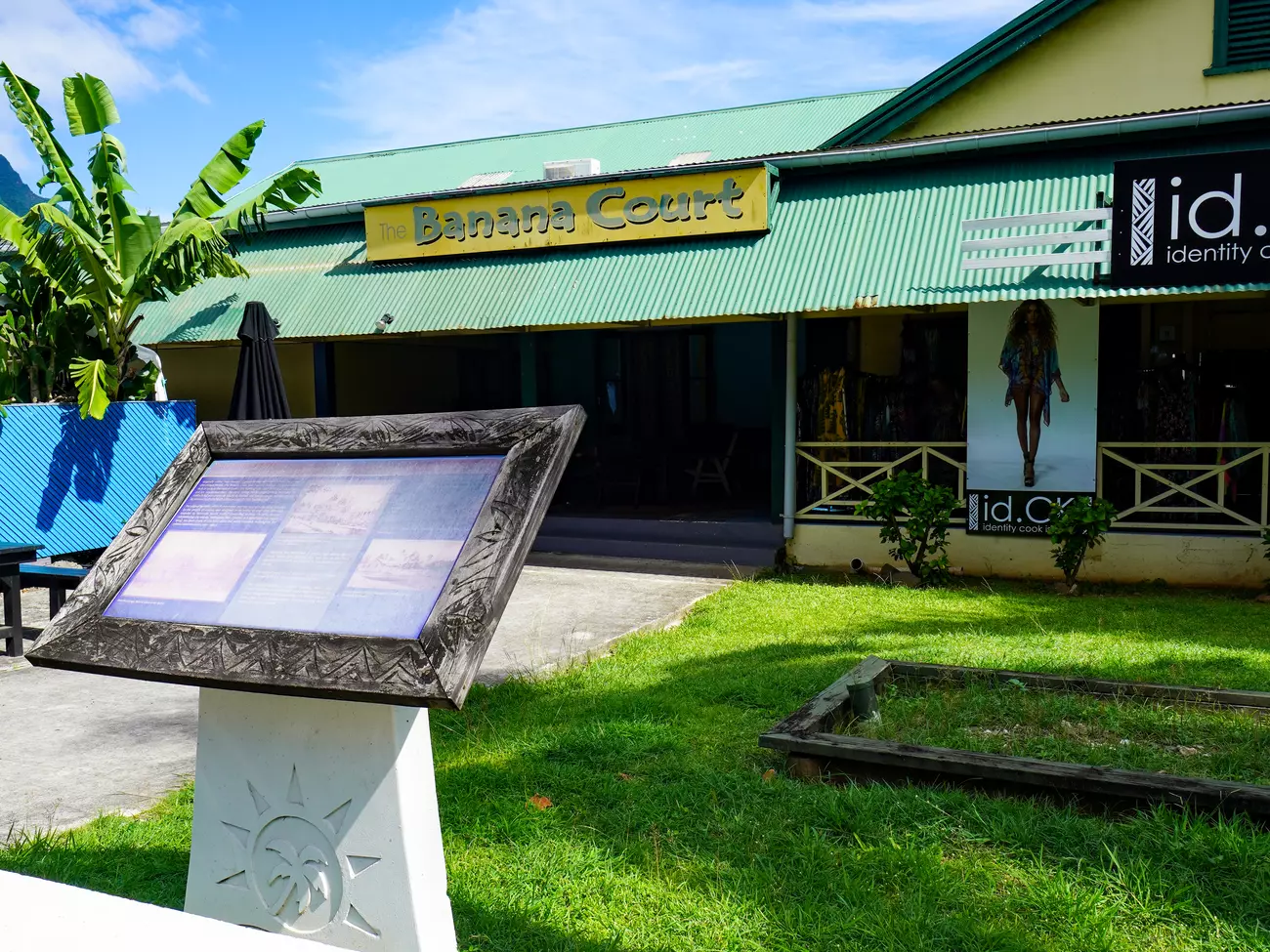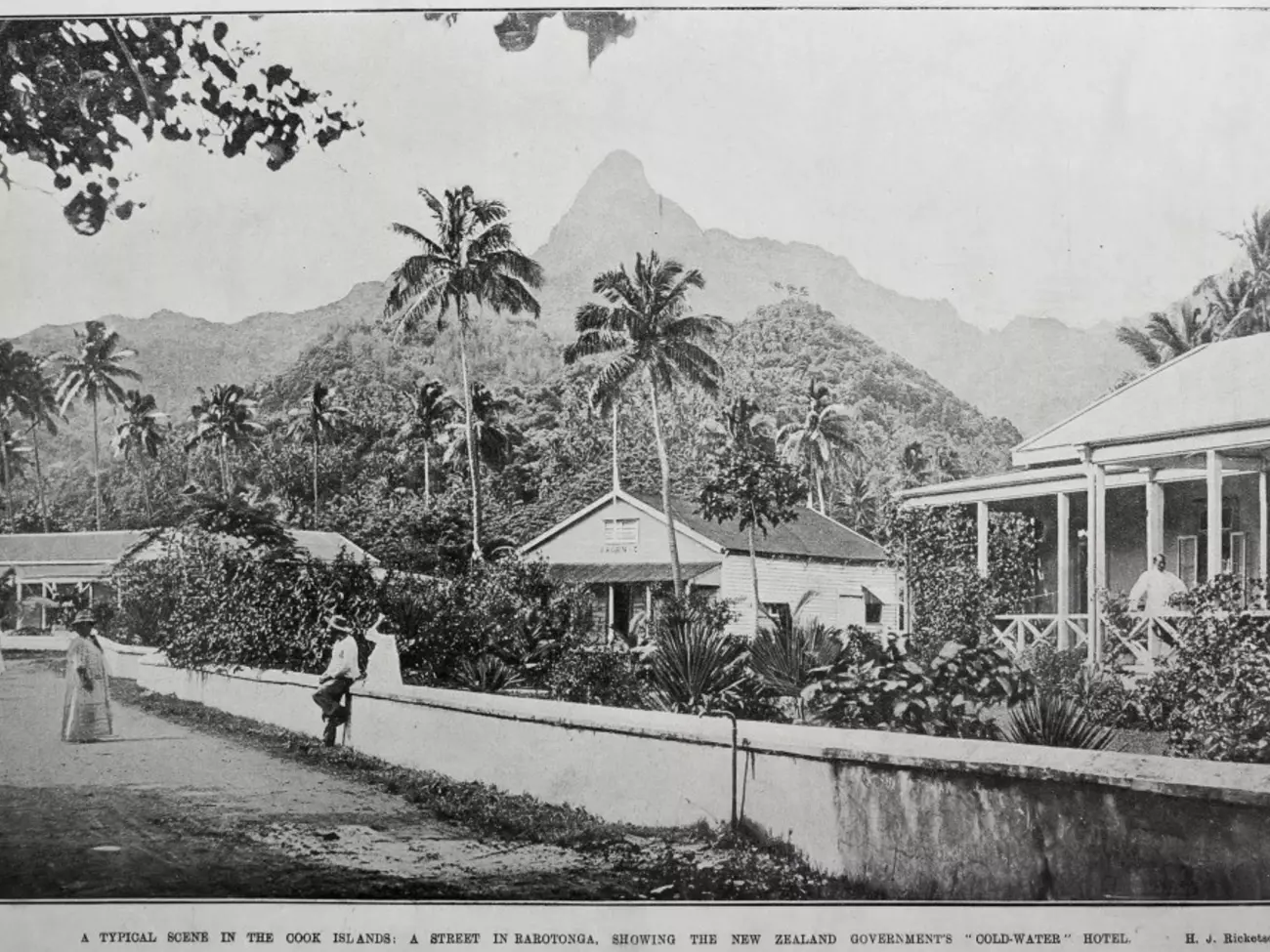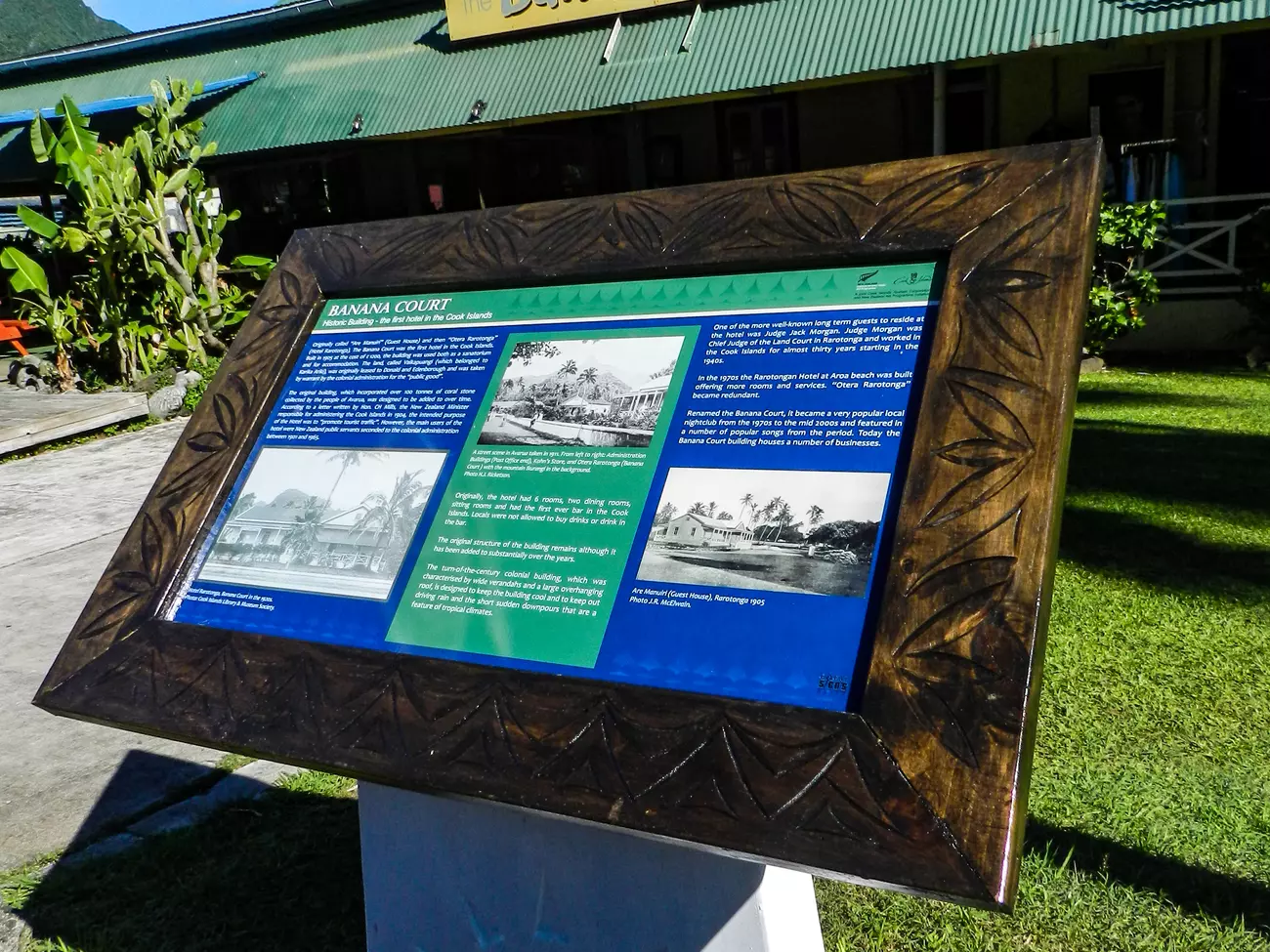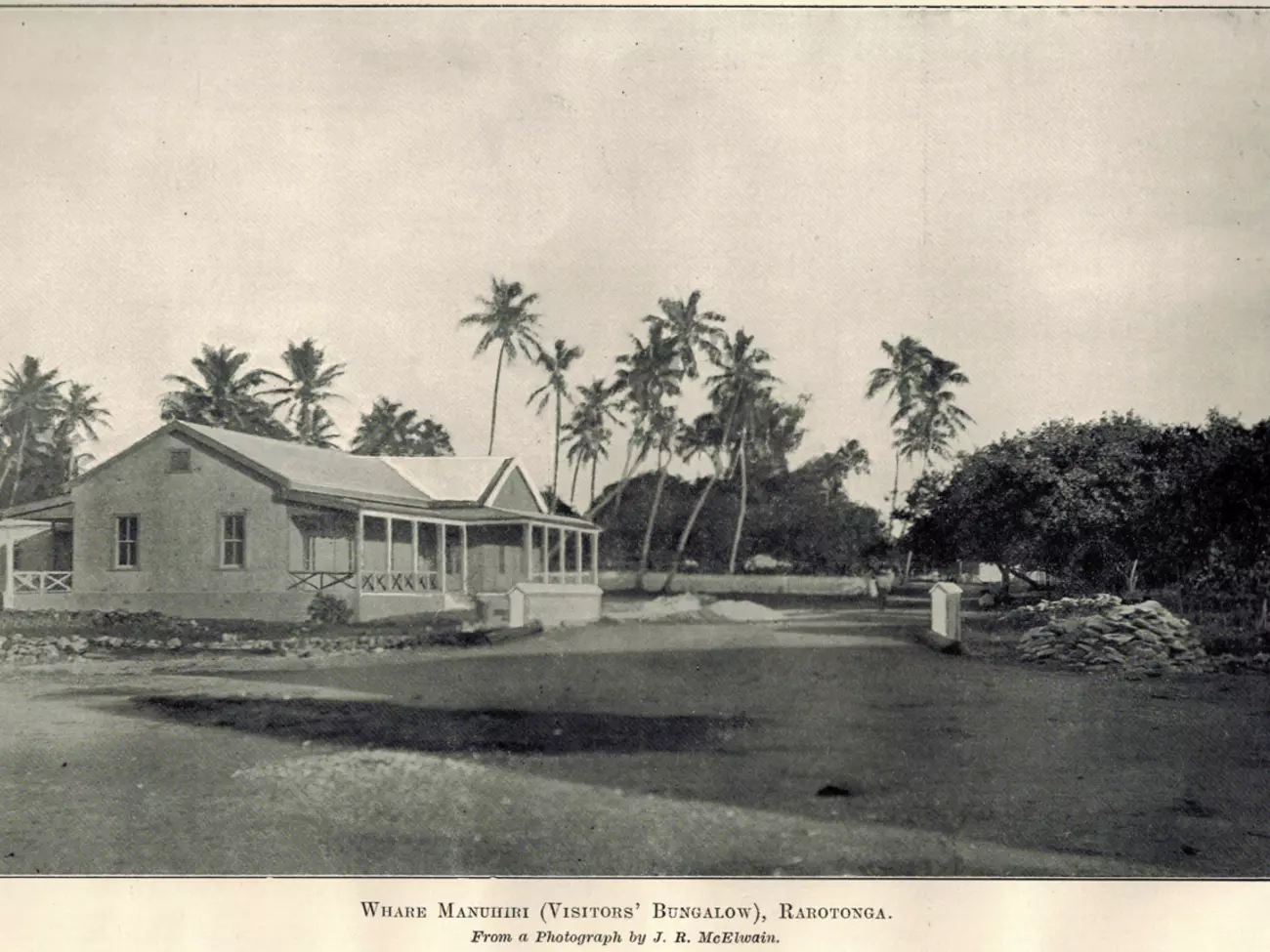Historic Building - The first hotel in the Cook Islands
Originally called "Are Manuiri" (guest house) and then “Otera Rarotonga” (Rarotonga hotel), this building was the first hotel in the Cook Islands. Built in 1905, at the cost £1200, the building was used both as a sanatorium and an accommodation house. The land, called Vaikapuangi, belonging to Karika Ariki, was originally leased to Donald and Edenborough and was taken by warrant by the colonial administration for the "public good".
The original building, which incorporated over 100 tons of coral stone, collected by the people of Avarua, was designed to be added to over time. Although intended to "promote tourist traffic" (according to Hon. CH Mills, Minister administering the islands, Wellington, New Zealand, in a letter dated 25 Aug 1904), the main users of the hotel were the public servants working for the colonial administration (1901-1965).
Originally, the hotel had 6 rooms, two dining rooms and sitting rooms and had the first ever bar in the Cook Islands. Locals were not allowed to buy drinks or drink in the bar.
The original structure of the building remains although it has been added to substantially over the years.
The turn of the century colonial building, which is characterised by wide verandahs and a large overhanging roof, is designed to keep the building cool and to keep out driving rain - short and sudden downpours being a feature of tropical climates.
One of the longest guests to live in the hotel was one Judge Jack Morgan, a New Zealander, who lived and worked in the Cook Islands for nearly 30 years (from the 1940s).
In the 1970s the Rarotongan Hotel at Aroa beach was built offering more rooms and services. “Otera Rarotonga” became redundant. Renamed the Banana Court Bar, it became a very popular local nightclub from the 1970s to mid 2000s and featured in a number of popular local songs from the period.
Today the Banana Court building houses a number of businesses.



